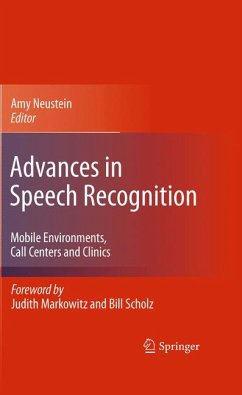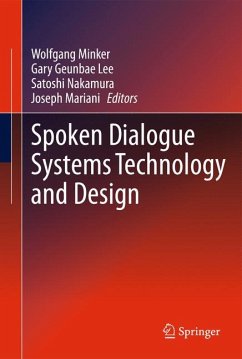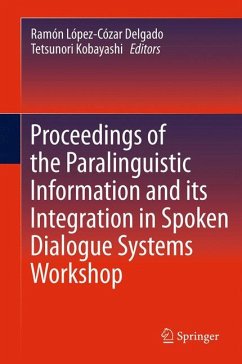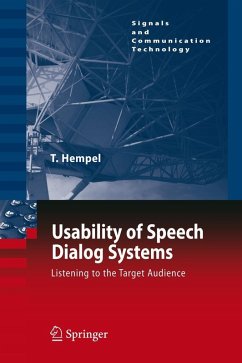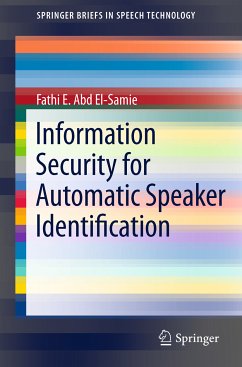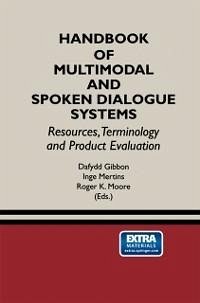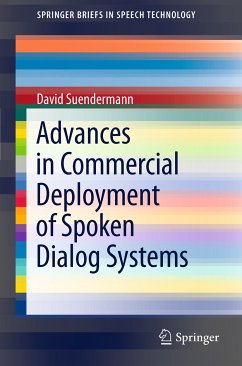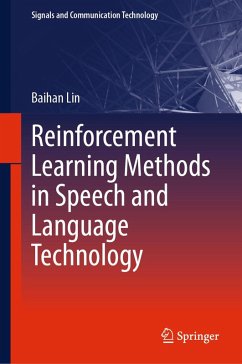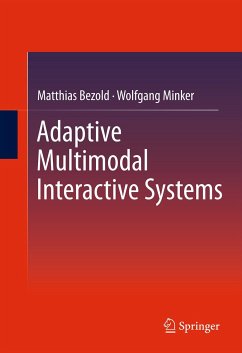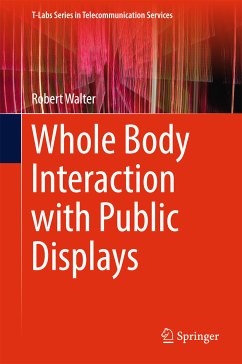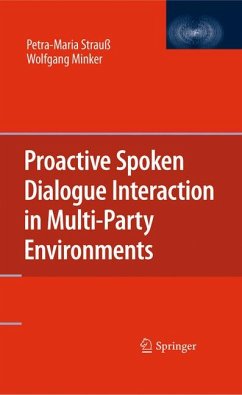
Proactive Spoken Dialogue Interaction in Multi-Party Environments (eBook, PDF)
Versandkostenfrei!
Sofort per Download lieferbar
72,95 €
inkl. MwSt.
Weitere Ausgaben:

PAYBACK Punkte
36 °P sammeln!
Proactive Spoken Dialogue Interaction in Multi-Party Environments describes spoken dialogue systems that act as independent dialogue partners in the conversation with and between users. The resulting novel characteristics such as proactiveness and multi-party capabilities pose new challenges on the dialogue management component of such a system and require the use and administration of an extensive dialogue history. In order to assist the proactive spoken dialogue systems development, a comprehensive data collection seems mandatory and may be performed in a Wizard-of-Oz environment. Such an en...
Proactive Spoken Dialogue Interaction in Multi-Party Environments describes spoken dialogue systems that act as independent dialogue partners in the conversation with and between users. The resulting novel characteristics such as proactiveness and multi-party capabilities pose new challenges on the dialogue management component of such a system and require the use and administration of an extensive dialogue history. In order to assist the proactive spoken dialogue systems development, a comprehensive data collection seems mandatory and may be performed in a Wizard-of-Oz environment. Such an environment builds also the appropriate basis for an extensive usability and acceptance evaluation.
Proactive Spoken Dialogue Interaction in Multi-Party Environments is a useful reference for students and researchers in speech processing.
Proactive Spoken Dialogue Interaction in Multi-Party Environments is a useful reference for students and researchers in speech processing.
Dieser Download kann aus rechtlichen Gründen nur mit Rechnungsadresse in A, B, BG, CY, CZ, D, DK, EW, E, FIN, F, GR, HR, H, IRL, I, LT, L, LR, M, NL, PL, P, R, S, SLO, SK ausgeliefert werden.




